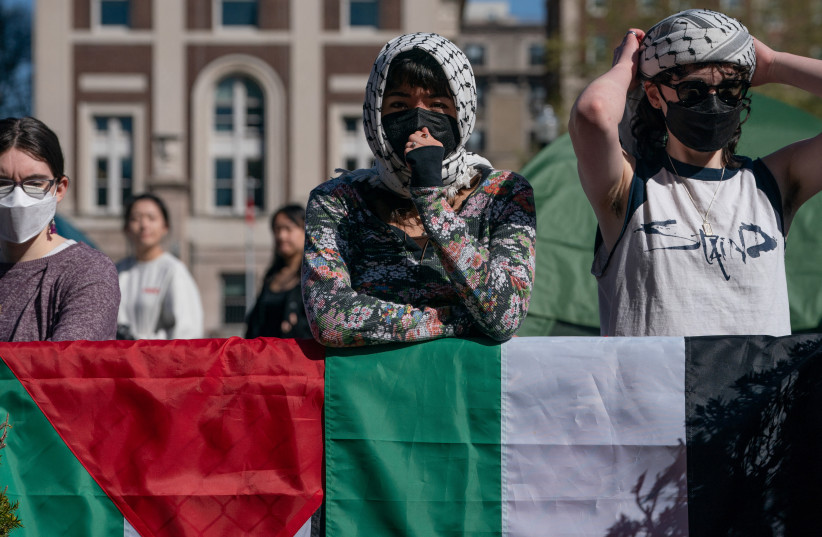Full disclosure: I once served as a guest lecturer at one of the major public universities in the United States. One of the courses I taught was the Israeli-Palestinian conflict and international media. Additionally, I gave various lectures about Israel within the community, where I met many American youths who were very curious about Israel.
However, one lecture stands out, particularly when, in the beginning, a participant approached me, claiming that as an Israeli, I was biased and, therefore, he did not expect me to present the facts impartially.
This statement, which has stayed with me since those days, has gained even more significance as the stormy protests against Israel, some involving acts of violence and antisemitism against Israeli and Jewish students on US college campuses, began.
Indeed, being Israeli, having a Jewish identity, and every other component of our personality create cognitive biases in information processing and our perception of reality. Such biases exist in everyone.
However, as researchers who educate the next generation, we are expected to reflect the complexity of reality. That is especially true given the generational gap with Generation Z, who are now experiencing their first years at university and were born after the 9/11 terrorist attacks.

According to studies, this generation primarily consumes information and news through social networks, with Instagram and TikTok at the forefront, the latter of which was found by The Wall Street Journal to promote more pro-Hamas content.
The reality of Generation Z
In other words, for Generation Z, the reality reflected on social networks is also the reality they subjectively perceive without neutral information sources or prior personal familiarity with the subject, with many of them having never visited Israel.
Thus, the importance of facts also loses its significance in favor of extensive use of extreme negative emotions, accompanied by the spread of false information.
Indeed, discussing government policy in war and conflict management is possible and necessary. Still, such discussion should not allow for denying the existence of the State of Israel or harming the sense of security of Israeli and Jewish students and students at large on campuses.
The right to free speech, manifested in the protests, is vital, yet it is not a substitute for supporting or promoting terror and conduct that disrupts public order. As students from Iraq and Syria who attended my class claimed, although they were taught from childhood to hate Israel, their first encounter with an Israeli and the ability to have a dialogue and conversation even when disagreeing is a critical component that may influence extreme positions on both sides.
In the coming years, the younger generation will take on decision-making roles, overseeing the relationship between Israel and the United States. Therefore, Israel would do well to prioritize its relationship with them through the establishment of a technological intelligence unit in the service of facts and digital accessibility, using, for example, artificial intelligence influencers and digital communities across various fields to spread information on a long and complex conflict that indeed cannot be summarized in a single digital post or story.
Thus, we can offer an alternative to those who have not decided and strengthen those concerned; perhaps we are unlikely to convince the extremists otherwise.
The writer is a researcher, lecturer, and consultant in persuasion and behavioral design at Reichman University, and a member of the Devorah Forum.
